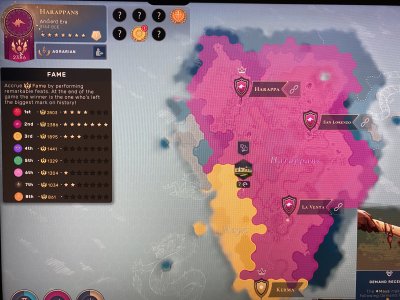8housesofelixir
Emperor
- Joined
- Jul 15, 2020
- Messages
- 1,902
Huh, just noticed that outposts are actually named after stars--a reference to Endless Space 2, no doubt. It was Cor Caroli that tipped me off, and since then I've noticed several more star names.
All the outpost names are in fact the names of territories, so basically every territory is named after a star or a part of a constellation. I'd say it's a nice way to pull off a long list of not-random names (a normal size map easily has 70+ territories) without burning out all your brain cells.
Since you have basically free access to everyone else's luxuries just by spending a bit of money in diplomacy, even if you're mainly just doing it for the yield bonuses it gives to your cities, in the process you also get so many global Stability bonuses that alone makes up for the Stability costs of districts, and that's not even taking other things that increase it into account yet. Like imagine having free access to every luxury resource on the map in Civ V, how easy it would've been to manage Happiness in that case. That's basically what Humankind is doing here. Something needs to be adjusted.
Note that trading is not something the player can entirely control; unlike Civ you cannot actively sell things. So if you angered a lot of AIs - which will happen from time to time! - and therefore lost that free access, your stability and yield will tank.
I do agree that for 80% of the time is not hard to please the AI by buying and selling resources; on the other hand, that's how trading works for most of the 4x games.

 Now I need to decide if I want Celts or Aksumites (or Romans but yuck) to go with Stonehenge, not bad choices for being the last out of Ancient at T53. This is by far my strongest start! I probably won’t play past classical unless one of the leader picks up some steam.
Now I need to decide if I want Celts or Aksumites (or Romans but yuck) to go with Stonehenge, not bad choices for being the last out of Ancient at T53. This is by far my strongest start! I probably won’t play past classical unless one of the leader picks up some steam.
 .
.